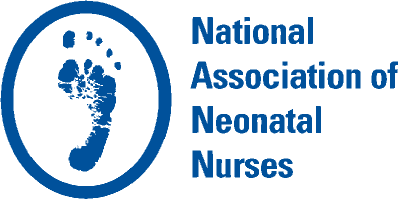NANNP Corner
Doctorate of Nursing as Entry into Practice
Lee Shirland, MS APRN NNP-BC, NAPS Co-Coordinator, NANNP Council Chair
The current entry degree for nursing practice is a master’s; however, the Doctorate of Nursing Practice (DNP) long has been debated as the preferred degree for entry to practice for the nurse practitioner. As such, there is great momentum for the DNP to become the new standard for practice. What are the driving forces of this movement? What are the benefits of the DNP as entry into practice and what are the pitfalls? Where does NANNP stand on this important practice topic?
In 2001, the Institute of Medicine (IOM) report titled “Crossing the Quality Chasm: A New Health System for the 21st Century” recommended a multidisciplinary approach to developing strategies for restructuring clinical education. The report detailed five core competencies that must be incorporated into education across the continuum of health care: providing patient-centered care, working in interdisciplinary teams, employing evidence-based practice, applying quality improvement, and utilizing informatics. In 2010, the IOM recommended that nurse practitioners be allowed to practice to the fullest extent of their education and that nurses achieve higher levels of education. The National Organization of Nurse Practitioner Faculties (NONPF) recommends that the DNP become entry into practice by the year 2025.
Neonatal nurse practitioners (NNPs) who have obtained the DNP are better prepared to take leading roles in writing, implementing, and publishing evidenced-based practice protocols and guidelines. Benefits of the DNP include preparation for leading quality improvement initiatives and the ability to identify appropriate initiatives for different neonatal intensive care units (NICUs) and practice settings across the country. It enables NNPs to better make these determinations based on clinical outcomes and benchmarking data, as well as appropriate informatics to employ in each initiative.
So what are the concerns with the DNP as entry into practice? There already are openings for NNPs in many NICUs across the country, and with a higher degree comes longer education requirements and expenses that may deter nurses from becoming nurse practitioners. Some NNP programs are struggling and many have closed. If obtaining a DNP becomes the standard for practice entry, will other struggling programs be forced to close? Will this new standard decrease the number of PhD-prepared nurse practitioners if they are required to have a DNP? Of the 39 NNP programs across the United States, only 14 offer the DNP as a final degree.
NANNP’s 2009 position statement #3048, “Educational Preparation for Nursing Practice Roles,” states that “the DNP degree should be recognized as one option for NNP and neonatal clinical nursing specialist education, but at this time it should not be required for entry into advanced practice.” NANNP is currently in the process of revising this position statement. As the national voice advocating for the NNP, we have requested a seat at the table of the national organizations involved in discussions of implementing a DNP as entry into practice.
This article has detailed only one of the many critical practice issues our council has undertaken. This year’s call for nominations for the NANNP Council is now open. Please consider running for a seat on the council to represent NNPs. It is exciting to be involved at the national level with issues that impact you daily at the bedside.
References
- Wolfe, A. (2001). Institute of Medicine Report: Crossing the Quality Chasm: A New Health Care System for the 21st Century. Policy, Politics, & Nursing Practice, 2(3), 233–235.
- Health professions education: a bridge to quality. (2004). Washington, D.C.: National Academies Press.
- The Future of nursing: Leading change, advancing health. (2010). Washington, D.C.: National Academies Press.


